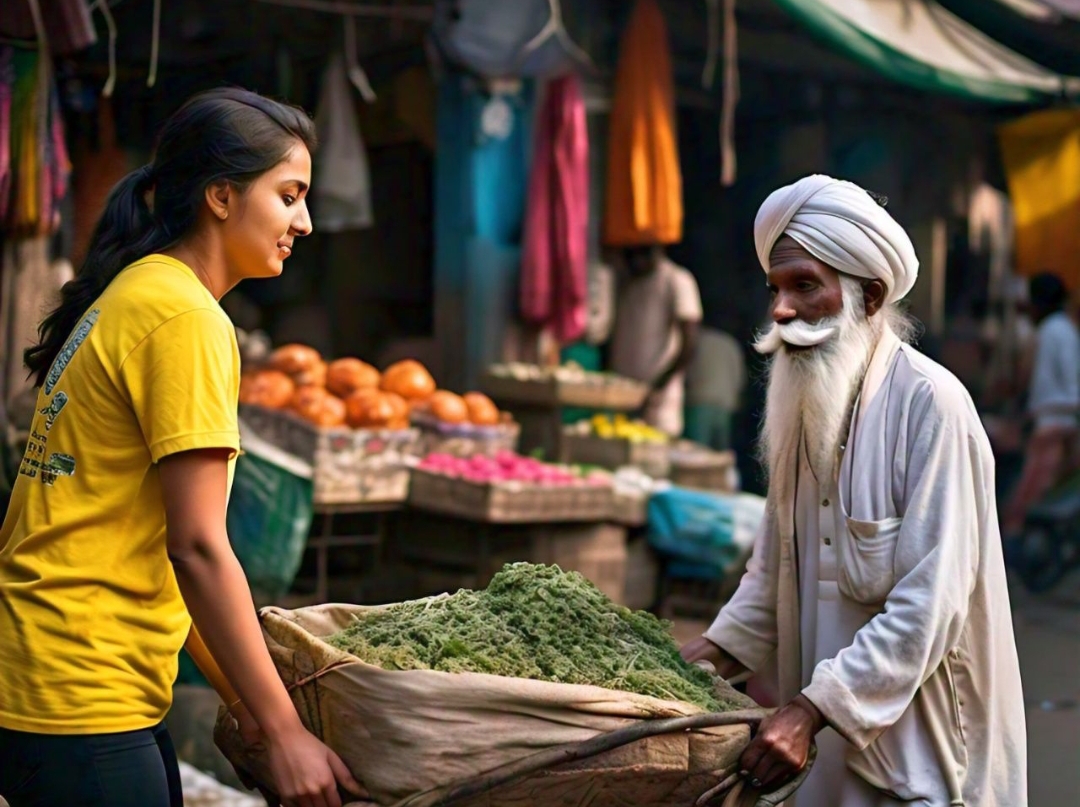Find out why helping someone without asking first can be seen as disrespectful in some countries. Learn how to respect different cultural practices and navigate these differences.

One of the biggest culture shocks I experienced here is the way people approach helping others, especially the elderly. Back home in Igbo land, when you see an elder struggling with something, the natural reaction is to rush to their aid without even thinking twice. But here, it’s a different story.
I learned this the hard way during a trip to Walmart with Mr. Bill, an elderly man in his 70s. As we were shopping, I noticed him pushing a cart, and out of respect and habit, I tried to help him. How could a young man like me stand by and watch an older person struggle? In our culture, it’s not proper to do so.
To my surprise, Mr. Bill stopped me and said, “What you did now is wrong in my culture, but I understand you. You’ve been teaching me about your culture, and I see where you’re coming from.”
Confused, I asked him why helping an elderly person would be considered wrong. He explained, “Here, we don’t believe we are old or incapable. Every American has this ‘I can do it’ spirit. When you offer help without being asked, it feels like you’re questioning our ability to take care of ourselves. It’s like saying, ‘You’re weak and need assistance,’ which is disrespectful.”
I was shocked. In Igbo culture, failing to assist an elder would be seen as cruel and heartless. But Mr. Bill’s words made sense in the context of his culture. He continued, “Before you help someone here, always ask, ‘May I help you?’ Even if you see someone struggling or in danger, seek permission first. If they don’t consent, you move on.”
Mr. Bill reminded me of a similar situation that happened at the mall. A woman living with a disability was struggling to reach an item on a high shelf, and no one around her was offering help. When I approached, she asked me if I could assist her, and I gladly helped place the item in her cart. I even asked if she needed anything else, but she politely declined.
Mr. Bill used that incident to drive his point home. “All she wanted was help with that one item. When you asked if she needed anything more, she said no. Here, people value their independence, and offering more help than requested can be seen as overstepping boundaries.”
I realized then just how different cultures could be. In my country, if I fail to help an elder in need, I’d be considered wicked and mean. But in this new environment, I had to learn to respect the independence of others, no matter how well-intentioned my actions were. Mr. Bill also warned me that offering unsolicited help could lead to misunderstandings, especially in a society where issues like racism can make innocent gestures seem suspicious.
He ended our conversation with a smile, saying, “You’ve taught me about your culture, and now I’m teaching you mine. We’re both learning from each other.”
His advice left a lasting impact on me. “When you go to a new place,” he said, “learn how they do things and adjust accordingly. When in Rome, act like the Romans. Nkụ dị na mba na-eghere mbà nri—each culture has its own way of doing things.”
From that day, I made sure not to rush in and help anyone unless they asked for it. It’s a valuable lesson I’ll carry with me, and one that reminds me that respect looks different depending on where you are. It’s a practice we can easily do in Nigeria, but elsewhere, asking first is key.
See also: Celebrating Izhi Culture and Values at the 2024 Ojiji Izhi Festival
Nigerian Man, Maazi Ogbonnaya Offered Fully Funded Scholarship to Study in the Best USA University
Concise Key Points to Note About Ebonyi State: Cities, Clans, and Famous People
